#slavic studies
Explore tagged Tumblr posts
Text
Who knew it’d be so hard to get my hands on ‘Eros and P*rnography in Russian Culture’ the 1991 classic.
#Slavic studies#human sexuality#Russian culture#Eastern European studies#Russian studies#Russian literature
0 notes
Text


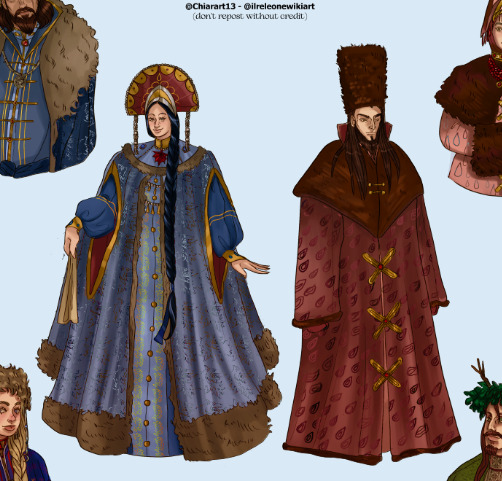
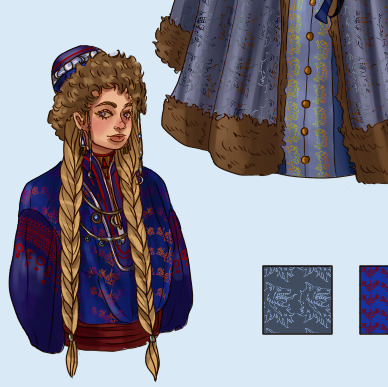
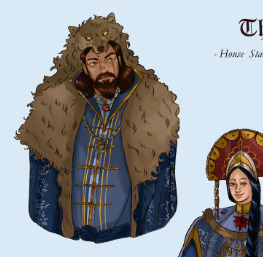
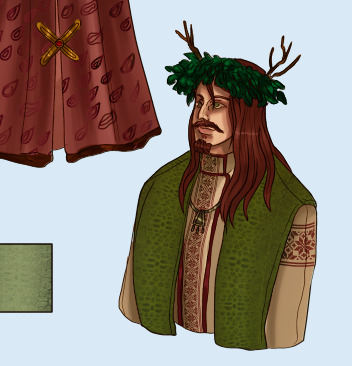
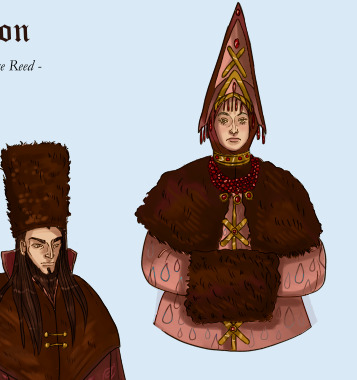

Westeros fashion studies: The North
"The north, or the North, or the winterlands is one of the constituent regions of Westeros and was a sovereign nation ruled by Kings in the North before Aegon's Conquest. The largest region of the Seven Kingdoms, the dominion of House Stark extends from the border of the New Gift, which is controlled by the Night's Watch, to the southern edge of the Neck far to the south.
The north has been ruled by the Starks for thousands of years from the castle known as Winterfell. The only city in the region is White Harbor, while the most prominent northern towns are the winter town and Barrowton. Notable bannermen of the region include Bolton, Cerwyn, Dustin, Flint, Glover, Hornwood, Karstark, Manderly, Mormont, Reed, Ryswell, Tallhart, and Umber. Bastards of noble origin raised in the north are given the surname Snow."
#illustration#artists on tumblr#digital illustration#chiara's art#digital art#art#fanart#pre asoiaf#a song of ice and fire#asoiaf fanfic#asoiaf art#valyrianscrolls#the north#house stark#house bolton#house reed#mountains clans#george rr martin#grrm#character art#character design#fashion studies#fashion illustration#slavic folklore#slavic paganism#sami#cregan stark#tdiobcb#the doom in our blood comes back#oc
616 notes
·
View notes
Text

and when the guilt consumes you, what will you hold onto
#christianity#religious imagery#religioncore#ethel cain#preachers daughter#sun bleached flies#the virgin suicides#jesus christ#bible#bible study#religious trauma#religious art#balkan violence#balkan#balkanviolence#russia#slavic#greek orthodox#greek tumblr#put me in a movie#orthodox christianity#orthodoxy#orthodox#church#catholicism#catholic#catholiscism#southern americana#southern goth aesthetic#western
145 notes
·
View notes
Text
my workout routine for the last three days of 2024 ,, to start the new year on a good foot <3



non-negotiables
ballet workout for the core
warmup to prevent injury
stretching to cool down
posture correction exercises
momomi workouts (4)
december 29
weighted abs workout
leg workout
calisthenics ab workout
full body barre workout
december 30
functional core workout
arm workout
barre arms workout
hourglass pilates workout
december 31
standing ab workout
beginner calisthenics
pilates for toned abs workout
tiny waist pilates workout
#fitness#girlblogging#glow up#self love#wellnessgoals#study motivation#health#wellness aesthetic#wellnesslifestyle#wonyoungism#girl blogger#girl blog aesthetic#girlhood#girl things#coquette aesthetic#coquette angel#coquette#angelcore#angelic#vs angel#vs pink#slavic doll#black swan#nina sayers#light as a feather#pastel pink#pinkcore#kawaii#skincare#it girl
83 notes
·
View notes
Text

#wonyoungism#becoming that girl#clean girl#vlada roslyakova#healthy living#snejana onopka#slavic doll#healthy lifestyle#study motivation#studyspo#studyblr#study aesthetic
79 notes
·
View notes
Text









Serbian Language
Ljudi preziru sve one koji ne uspiju, a mrze one koji se uspnu iznad njih; Navikni se na prezir ako želis mir, ili na mržnju ako pristaneš na borbu... People despise all those who fail, and hate those who rise above them; Get used to the feeling of contempt if you want peace, or that of hatred if you decide to fight...
– Meša Selimović (1910-1982)
#serbia#serbian#serbian language#serbian culture#slavic languages#slavic aesthetic#slavic#yugoslavia#belgrade#balkan#balkans#balkan culture#eastern europe#eastern european#yugoslav#cyrillic#european languages#langblr#foreign languages#polyglot#language learning#languages#language#language study#balkan countries
28 notes
·
View notes
Text


i feel like i’m finally back in my honeymoon phase



I haven’t felt so pure and motivated for a while



but now i feel like i’m capable of anything


#girl blogger#girlblogging#girlhood#girly aesthetic#just girly posts#just girly things#just girly thoughts#hell is a teenage girl#girl hysteria#gaslight gatekeep girlboss#this is what makes us girls#lana core#girly stuff#study motivation#studyblr#slavic doll#coquette dollete#dollblr#lana is our queen#female insanity#i wanna be perfect#im just a girl#tumblr girls#dream girl#manic pixie dream girl#sofia coppola archive#lana del rey aesthetic#lana del ray aka lizzy grant#rice cake nation#hungry caterpillar
33 notes
·
View notes
Text


Maybe I'm back, maybe not. .-.
#hristinasview#mine#studyblr#aesthetic#bullet journal#architecture#art#home & lifestyle#museums#student#bujo#bujoinspo#studyspo#study motivation#diary#meal#chicken#slavic#aestethic#aesthetics#study snacks#snack#healthy#student life#lifestyle#calligraphy#handwriting#balcani#motivation#study
458 notes
·
View notes
Text
I have a big weakness for slavic women
#dark academia#light academia#love#love quotes#dark aesthetic#lana del rey#study academia#spilled ink#spilled poetry#study aesthetic#slavic girl#ich liebe dich#lovesick#lovers#i love you#love poem#classic academia#chaotic academia#romantic academia#academia aesthetic#spilled writing#spilled feelings#spilled words#spilled thoughts#feelings#poetry#emotions#thoughts#txt#txt post
27 notes
·
View notes
Text
Free online courses about Ukraine
Basics of the Ukrainian Language and Culture - https://www.open.edu/openlearn/languages/introduction-ukrainian-language-and-culture/
Ukraine: History, Culture, and Identities; this course is available in English, French, Italian, and Norwegian on Coursera: https://ui.org.ua/en/sectors-en/the-first-online-course-about-ukraine-in-english/
The Making of Modern Ukraine with Timothy Snyder: https://www.coursera.org/learn/the-making-of-modern-ukraine
Crimea: History and People on Udemy: https://www.udemy.com/course/crimea-history-and-people/

#ukrainian language#ukrainian#ukrainian101#ukrainian lesson#learning languages#language learning#ua lang#ukraine#langblr#slavic languages#learnsomethingneweveryday#learning#self studying#polyglot#Language blog#foreign languages#learnukrainian#learn ukrainian#free resources for language learners#free courses#language courses#slavic language courses#eastern european languages#eastern european#Ukraine
323 notes
·
View notes
Text

My life my privacy.
#it girl#girlblogging#girlhood#self improvement#writeblr#self healing#self care#reading#studyblr#study aesthetic#study blog#baddiiesfr#slavic doll#runway#runaway#lana del ray aesthetic#becoming that girl#that girl#dream girl#manic pixie dream girl#dreamblr#fashion#au ra#success#messy icons#icons#coquette#2014 tumblr#grunge#lana del ray aka lizzy grant
24 notes
·
View notes
Text
I will be taking my last Russian exam (actually the last exam of my bachelor's baby!!) in a few days, my final dissertation will be related to Russia, and honestly studying it has had a significant impact on my life in many ways.
So I was thinking... why did I choose to learn it, back then? Of course I find it to be a mesmerizing language, but the thing is, at the time, one of the reasons was that I had already taken a Russian course at like 14 so it seemed only natural to "keep" learning it.
And so, why had I decided to take that course? Because of Yuri!!! On Ice. Because I was so obsessed with Viktor that I had started looking into the language and actually loved it. But yes, it all originated from fucking Yuri!!! On Ice.
I guess that's my personal butterfly effect?? From watching Yuri!!! On Ice to graduating as a linguistics major with Russian as one of the main languages. Yeah.
#idk if it's worth mentioning. but I enrolled in 2021 before the war went down#to be fair I'm not sure I would've chosen it a year later#on the other hand it's virtually impossible to study other slavic languages in uni#at least in my area#I do love russian regardless. truly one of the most beautiful languages in the world imo#linguistics#yuri on ice
24 notes
·
View notes
Text
the music in WOT is never random. even if it's just very soft background music, it's relevant to the scene. practically every time there's music playing while egwene is onscreen during s2, the tune is egwene's theme, rearranged and reinstrumentated in dozens of different ways to match the tone of the particular scene. mat has quick little snippets of his theme tune play during various scenes of his, often mixed with the old blood theme from s1, and it finally blares out in full glory for the first time during the horn of valere scene, to parallel how mat is truly finding himself for the first time. even secondary characters like liandrin, siuan, and aviendha have their own dedicated theme tunes that play during their scenes and are never repurposed as background music in other characters' scenes. and all the themes have lyrics in the old tongue that suit the character or concept the theme is about! in conclusion, lorne balfe is truly doing the Most, and i'm so grateful he's the composer for WOT and i hope he'll return for every season the show goes for.
#it's such a joy to rewatch the show after studying the soundtrack and listening to it a million times!#sometimes i would forget to listen to the dialogue because i was too excited about trying to identify the faint background tune#wot#wot on prime#the wheel of time#fingers crossed lorne will be able to do it for all seasons bc keeping the same composer really is so integral for a show imo#especially one like WOT that established such a unique sound landscape in the early seasons#genuinely a major reason why the witcher s2 was such a step down from s1 for me (i haven't watched any seasons since 2)#is bc they changed composers and the cool slavic folk/metal vibe of s1 was replaced by generic fantasy orchestra in s2#it took so much life and feeling out of the show! you might not think soundtrack could have such an impact but it truly does!
85 notes
·
View notes
Text


Multiple languages fruit/food vocabulary lists! 🇮🇸🎌 🇫🇮🇨🇿🇵🇱🇸🇮
(Icelandic/Japanese/Finnish - Slavic languages: Russian/Czech/polish/Slovenian)
#Japanese#Finnish#Icelandic#slavic languages#Russian#Czech#Polish#Slovenian#polyglot#language blog#langblr#mine#my notes#language study#language nerd#vocabulary
18 notes
·
View notes
Text









#russian#russian studyblr#Russian study#langblr#language#language study#language motivation#language learning#learning#learnlanguages#learning russian#slavic languages#studyblr#manifestation board#manifesation#manifesting#moodboard#mood board#visionboard#vision board#2025#better me
13 notes
·
View notes
Text





To achieve your full potential, you have to work like your full potential 🫶🏼
#motivation#becoming that girl#clean girl#healthy living#healthy lifestyle#slavic doll#snejana onopka#vlada roslyakova#wonyoungism#wl#fashion model#study aesthetic#studyblr#high potential#higher self#future#future self#achievement#overachiever
10 notes
·
View notes